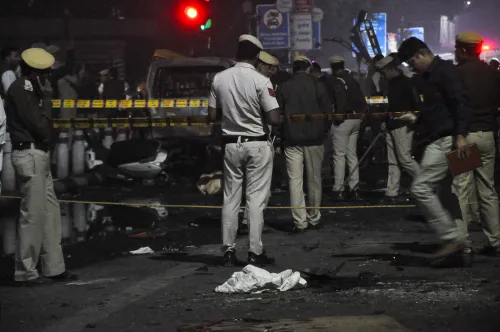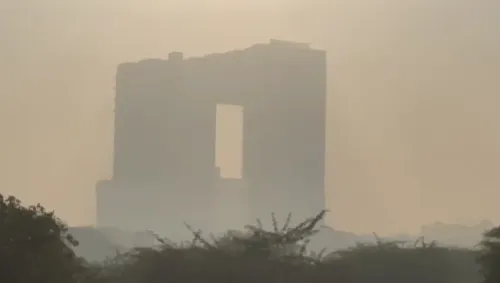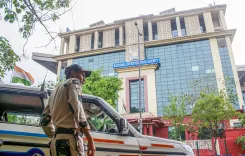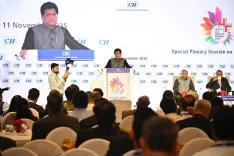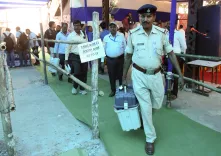Why Did the Delhi HC Dismiss the PIL to Remove Maqbool Bhat and Afzal Guru's Graves from Tihar Jail?
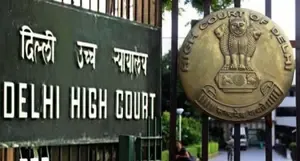
Synopsis
Key Takeaways
- The Delhi High Court dismissed a PIL concerning the graves of Maqbool Bhat and Afzal Guru.
- The court emphasized the legality of burial practices within prison premises.
- The petitioners claimed the graves glorified terrorism and undermined public order.
- The ruling highlights the tension between legal rights and public sentiment.
- Maqbool Bhat was a key figure in the JKLF insurgency.
Srinagar, Sep 24 (NationPress) The Delhi High Court dismissed a Public Interest Litigation (PIL) on Wednesday that sought orders for the removal of the graves of terrorists Maqbool Bhat and Afzal Guru from the Tihar jail premises.
Maqbool Bhat was executed in Tihar jail on February 11, 1984, while Afzal Guru was hanged on February 9, 2013, both within the same facility.
Subsequently, their remains were interred on jail grounds following Islamic burial rites.
The PIL was brought forth by Vishwa Vedic Sanatan Sangh and an individual named Jitendra Singh, arguing that the graves’ existence on state property was “illegal, unconstitutional, and contrary to public interest.”
A bench comprising Chief Justice Devendra Kumar Upadhyaya and Justice Tushar Rao Gedela of the Delhi High Court dismissed the PIL as it was withdrawn.
The bench’s hesitation to consider the PIL led to the petition lawyer requesting permission to withdraw the case.
The court remarked, “To seek relief via a PIL, one must demonstrate a violation of constitutional, fundamental, or statutory rights. There is no law or regulation against burial within jail premises,” the bench stated.
The PIL requested that authorities be directed to relocate the remains, if needed, to an undisclosed location to prevent the ‘glorification of terrorism’ and misuse of jail facilities. The petitioners asserted that the graves had transformed Tihar jail into a site of ‘radical pilgrimage’ where extremist factions gather to honor convicted terrorists.
“This not only jeopardizes national security and public order but also legitimizes terrorism, violating the principles of secularism and the rule of law under the Constitution of India,” the petitioners contended.
In response, the bench questioned the existence of evidence indicating that individuals were visiting to pay their respects at the graves of Guru and Bhat.
The petition claimed that the graves' presence within the jail contravened the Delhi Prisons Rules, 2018, which stipulate that the bodies of executed prisoners must be disposed of in a manner that prevents glorification, maintains prison discipline, and upholds public order.
Maqbool Bhat was the founder of the JKLF, which instigated an armed insurgency aimed at separating Jammu and Kashmir from India.
On November 4, 1989, JKLF militants assassinated judge Neelkanth Ganjoo, who had presided over the case that sentenced Bhat.
Afzal Guru was convicted for his involvement in the 2001 Parliament attack and received a death sentence that was affirmed by the Supreme Court. Following the rejection of a mercy petition by the President, he was executed on February 9, 2013, with his body buried within the confines of Delhi's Tihar Jail.

